Each newborn child comes into the world a unique being, a one-in-a-million creation.
In Hayden Pavlovic’s case, make that one in a billion.
At least.
Little Hayden, born with two rare chromosomal disorders, just might be the first of his kind. And his parents, who dote on their son and work to meet his special needs, see his uniqueness as cause for celebration.
“Sometimes, I think God wanted someone like Hayden here on Earth, and it fell onto our plate,” says Hayden’s mother, Tara Pavlovic, as she cuddles her son in the living room of their Walker, Michigan, home.
Hands-on touch is just one of the ways she and her husband help their 14-month-old, blue-eyed boy get the sensory input he craves.
I know that God has him here for reason.
Nearby stands an infant jungle gym with colorful toys that dangle and twirl. Hayden can’t see them―his eyes see only light and dark.
But his parents have wrapped the jungle gym in Christmas lights. At nighttime, they lay Hayden beneath the arches of the toy so he can watch the colors light up the darkness.
Hayden can’t hear, either. Even the roar of the vacuum cleaner doesn’t cause him to flinch.
But his mom and dad bend over and speak directly into his ear, so he can feel the vibrations resonate through his body.
“God wanted someone as special as Hayden here,” Tara says. “Beyond that, I have no other explanation.”
Even the geneticist who pinpointed Hayden’s diagnosis can’t explain all the hows and whys.
“This would be the sort of case that would make even world experts scratch their heads about how this happened,” said Caleb Bupp, MD, a Spectrum Health geneticist.
Hayden has Wolf-Hirschhorn syndrome, which can cause delayed growth and abnormalities in the heart and kidneys. He also has cri-du-chat syndrome, a condition which translates as “cry of the cat.” Infants with the condition have a high-pitched, cat-like cry. Both syndromes also cause developmental delays.
Wolf-Hirschhorn occurs in 1 in 50,000 births and cri-du-chat occurs once in every 20,000 to 50,000 babies.
Dr. Bupp calculates the odds of a child having both syndromes as somewhere between 1 in a billion to 1 in 2.5 billion. A search of scientific literature turns up no other cases.
A tough little fighter
Caring for their son has given Tara and Jeff Pavlovic a crash course in genetics. But they balance those lessons with ones taught by Hayden. They see him as a trailblazer and teacher, setting his own standards.
“Whatever he does, that’s the norm,” Jeff says.
Jeff gently lays Hayden on a soft fleece blanket for tummy time exercises. Hayden struggles to raise his head, swinging it from side to side. Slowly, he rises up, back arched, looking like a superhero ready to fly. A smile lights up his face, and his parents cheer.
He wanted to be here. He’s a fighter.
“It seems so simple, but he’s come a long way,” Tara says.
“We just know how much strength and practice it took for him to get there,” says Jeff.
The Pavlovics began investigating Hayden’s condition after an ultrasound during pregnancy showed his growth measured three weeks behind. Tests before birth for the more common chromosomal abnormalities did not identify a cause.
Hayden was born at Spectrum Health Butterworth Hospital six weeks early, weighing only 3 pounds. He showed signs of his unusual syndromes―wide-set eyes, a small jaw, a cleft palate and small kidneys. The Pavlovics decided to get genetic testing.
The Spectrum Health lab analyzed a small amount of blood to uncover the genetic code. Pieces of the fourth chromosome were missing―signaling Wolf-Hirschhorn syndrome, as well as pieces of the fifth chromosome―signaling cri-du-chat, Dr. Bupp says. The pink birthmark on Hayden’s forehead appears to be all his own.
Hayden may be unique because other infants with such genetic defects would likely have miscarried before birth.
“They told us they never would have expected Hayden to live,” Tara says. “He’s a miracle baby.”
“He wanted to be here,” Jeff says. “He’s a fighter.”
The Pavlovics have impressed Dr. Bupp with their optimism and ability to navigate the medical challenges.
“I think their positive attitude and outlook was really on from the beginning,” he says. “It’s always humbling as a physician when you have parents handling things far better than you can imagine handling them.”
After learning of Hayden’s unique genetic make-up, Tara and Jeff underwent testing to see if other children might be born with the same syndromes. Tests showed neither parent is a carrier of the genetic mutations.
“That was good news, to know for future kids,” Jeff says. “Yes, it can happen again, but the odds of it happening for us are the same as for anybody else.”
The couple is expecting a child in early June―a baby brother for Hayden. While they are honored to care for Hayden and his special needs, they also find it reassuring to know their second child shows no signs of genetic abnormalities.
The importance of touch
After Hayden was born, he spent three months in the neonatal intensive care unit at Spectrum Health Helen DeVos Children’s Hospital before coming home to sleep in his own crib. He is still fed through a feeding tube, and he is on oxygen―though now, he tends to need it only when he sleeps.
It’s mind boggling to me how complex Hayden’s diagnosis is, but obviously he has a bigger purpose, maybe even than myself.
He receives physical therapy and occupational therapy from Spectrum Health at Home, and his parents follow up with exercises throughout the week.
“Touch is super important for him,” Tara says. “He likes a nice squeeze. He doesn’t like a tickle.”
“All you have to do is hold him,” says Jeff. “I think it’s just a comfort—to know we’re here.”
Hayden rocks his head back and forth on the blanket, making small, squeaky cries. He is cutting his third tooth, and his parents think that might be causing discomfort.
Jeff takes a soft plastic brush and runs it over Hayden’s arms, legs and back. Then, he gently applies pressure to his leg joints and spine. With the brushing and joint compressions, Hayden grows calm and his cries stop.
“My favorite is to do sit-ups,” Jeff, a Kent County Sheriff’s deputy. He sets Hayden on the floor in front of him. “Hit it!” he says, as he rocks Hayden forward, curled into a sit-up.
After several sit-ups, he lays Hayden down and gives him a kiss. “Good job,” he says.
Hayden especially loves water. He revels in bath time.
Last summer, the Pavlovics took him to Lake Michigan. On a warm day, Jeff held him in the water and let him feel the waves.
The Pavlovics look forward to warmer weather, so they can take Hayden back to the beach.
“Like any other family, you create memories,” Jeff says.
‘An amazing baby’
Tara, who works part-time as a hairdresser, and Jeff have coordinated their work schedules so one of them can be with Hayden every day.
Hayden has made several return visits to the hospital―for hernia surgery and pneumonia―but overall, his health has been good. He regularly sees several specialists. He gets medicine to prevent seizures and to help his kidneys function. He will undergo tests to determine whether he can benefit from hearing aids.
But with his unique genetic makeup, the future remains a question mark for Hayden. It’s difficult for his parents or his doctors to predict what milestones he will reach or even how long he might live.
“It’s safe to say he will have a shorter-than-normal life expectancy,” Tara says.
But she and Jeff count their blessings, cherishing each step in Hayden’s growing awareness and abilities. He has grown to 14 pounds. He blows bubbles. He rolls over, sometimes moving himself across the floor.
“I am just thrilled with how much progress we have been able to make,” Tara says. “To see him moving as much as he does and rolling as much as he does—it still amazes me.”
She scoops up Hayden and holds him on her lap. Hayden makes happy cooing sounds.
Even as they embrace Hayden’s accomplishments, Tara acknowledges she struggled at first to come to terms with his diagnosis.
“The first six months was really emotional and hard,” she says. “But I didn’t want to spend my whole life crying.
“I’m glad I’m past all that. I just don’t go back. Obviously it’s been a journey, but it’s been just great. It has its days, but Hayden is an amazing baby.”
On that journey, the Pavlovics have encountered many moments of joy and learned life lessons from their son.
“He has taught us a lot―just about life and how fragile life is and how complex our bodies are,” Tara says.
“Obviously, I know that God has him here for reason. It’s mind boggling to me how complex Hayden’s diagnosis is, but obviously he has a bigger purpose, maybe even than myself. Because he is so special.”
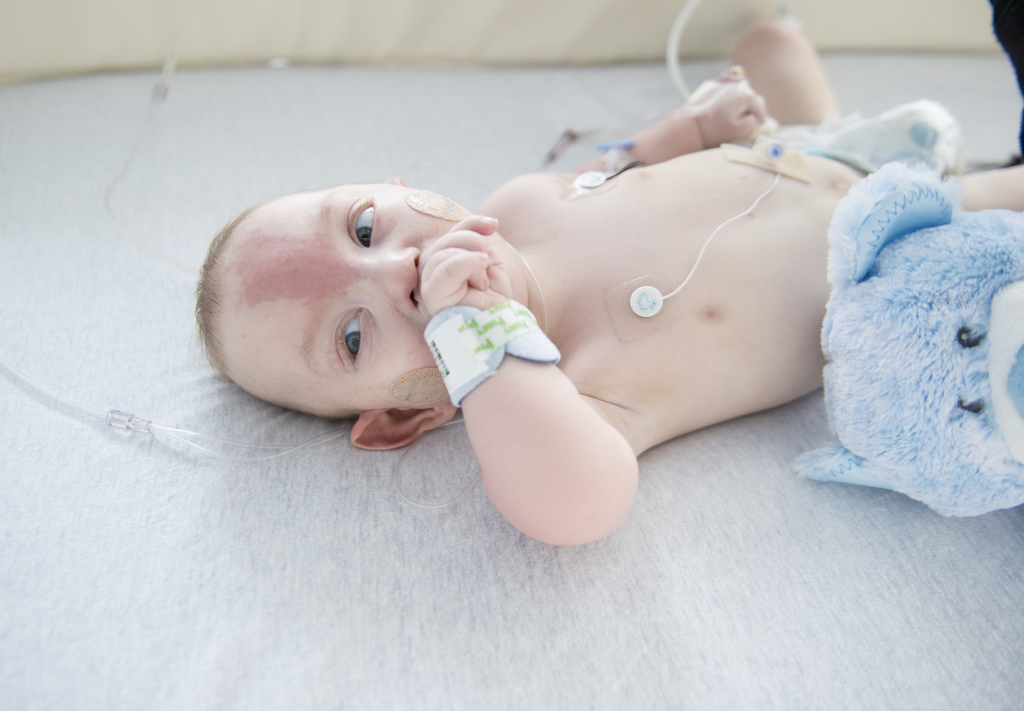
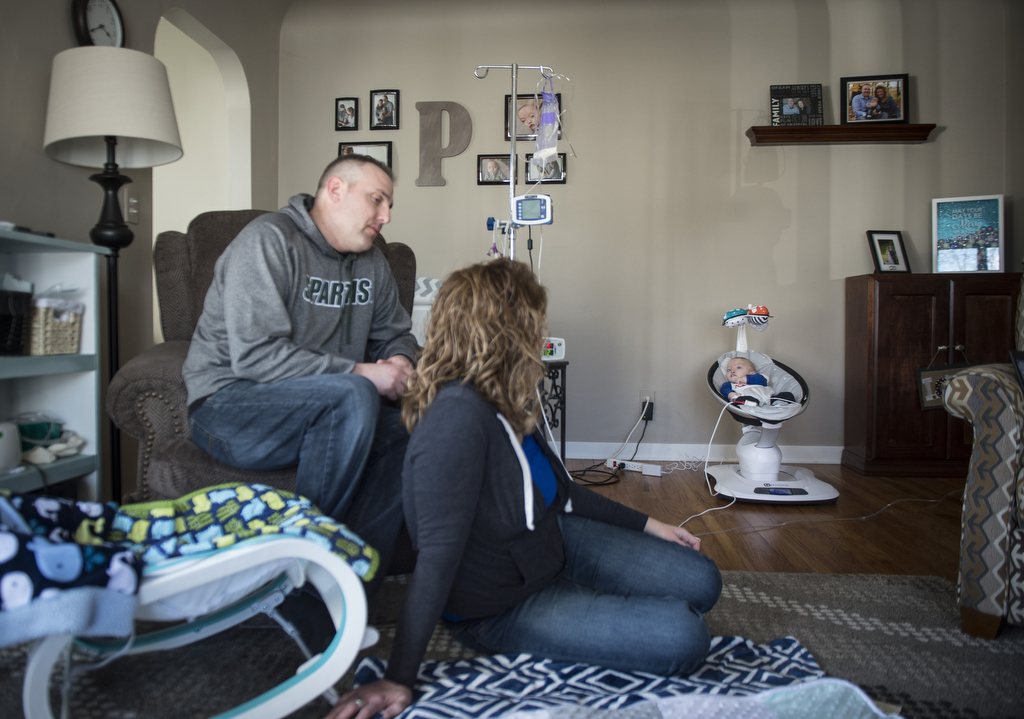
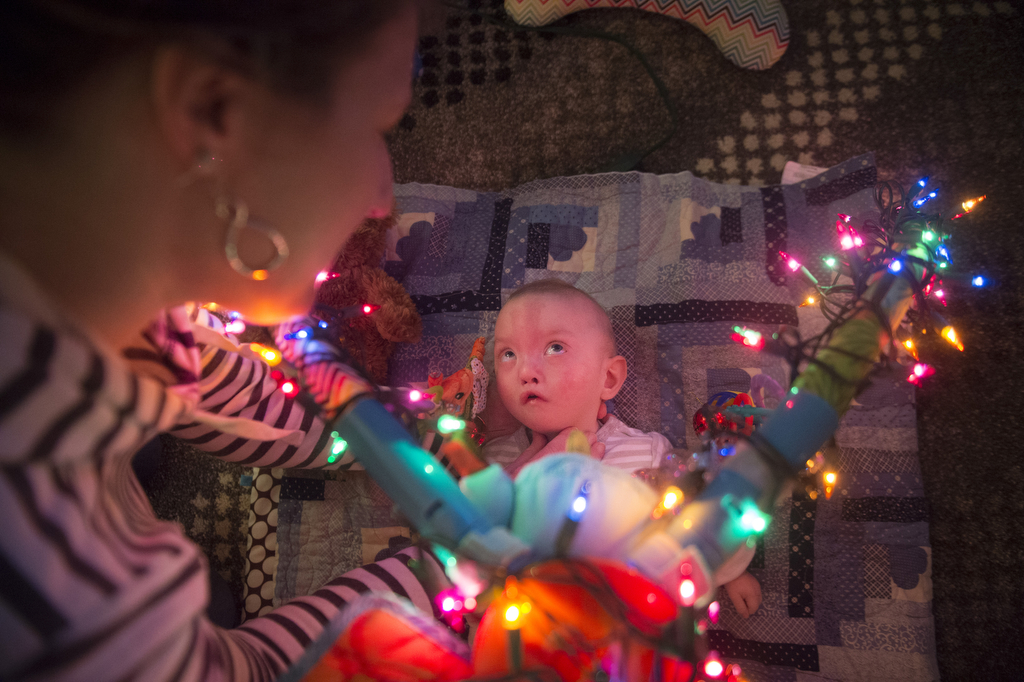
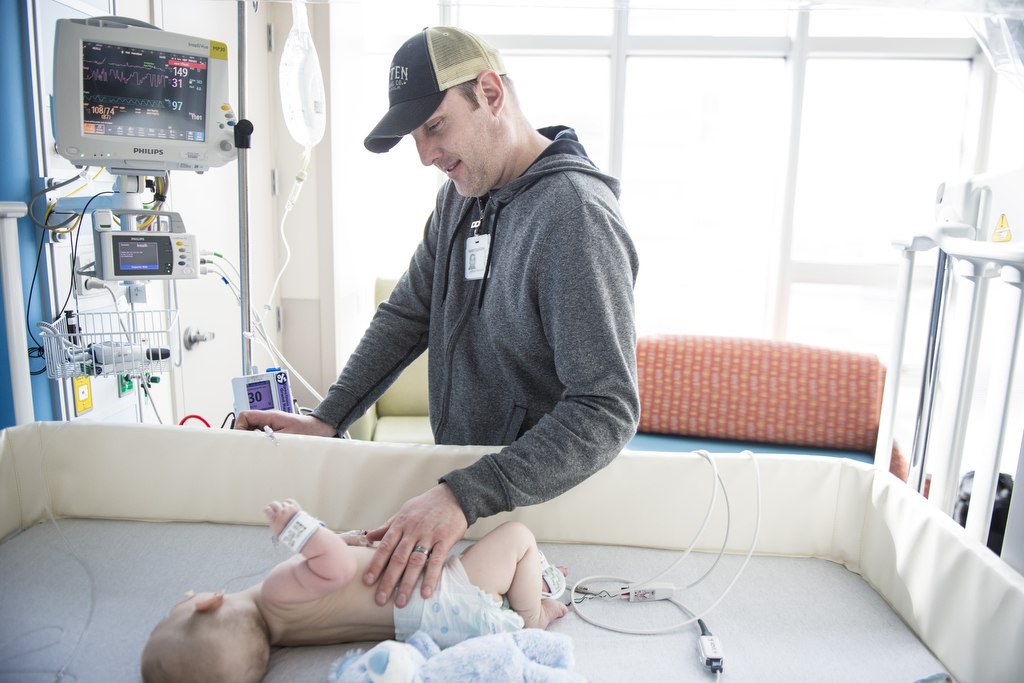
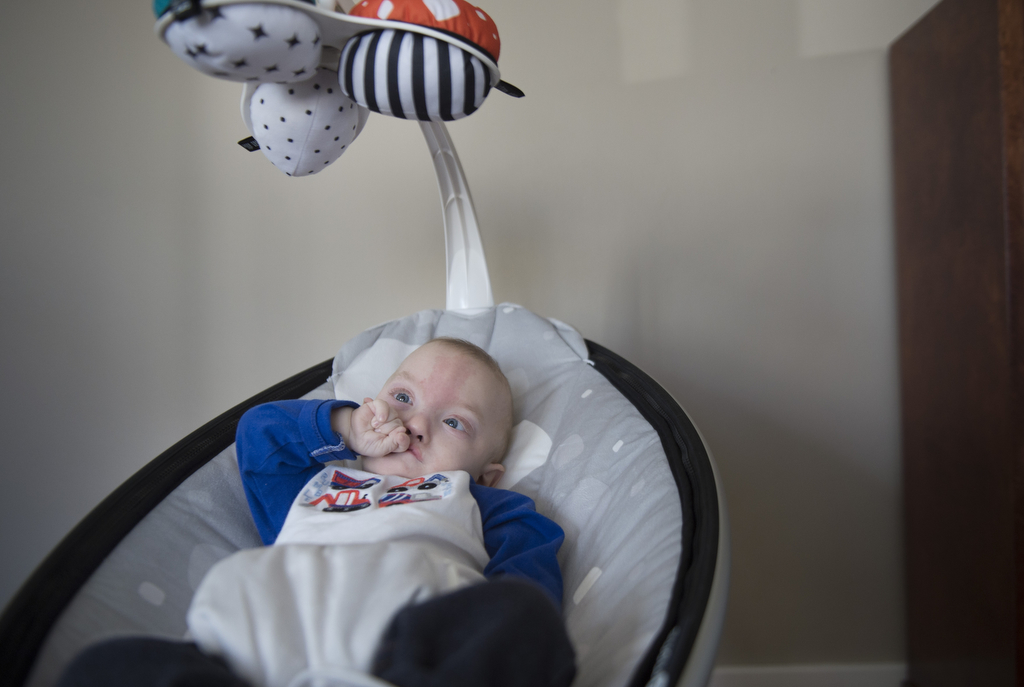
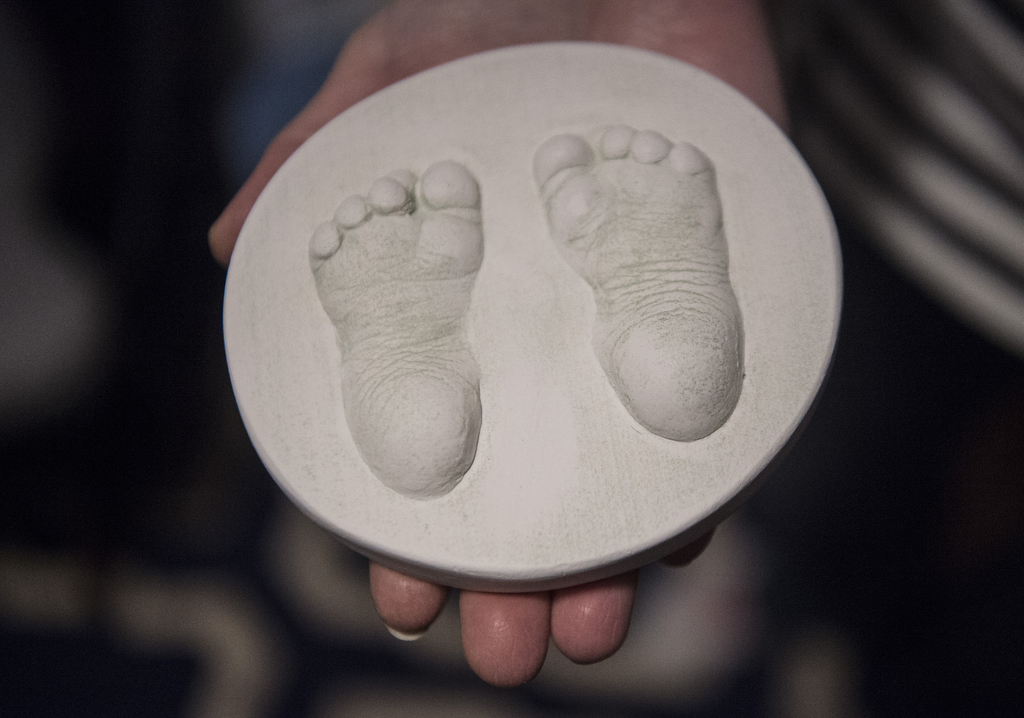

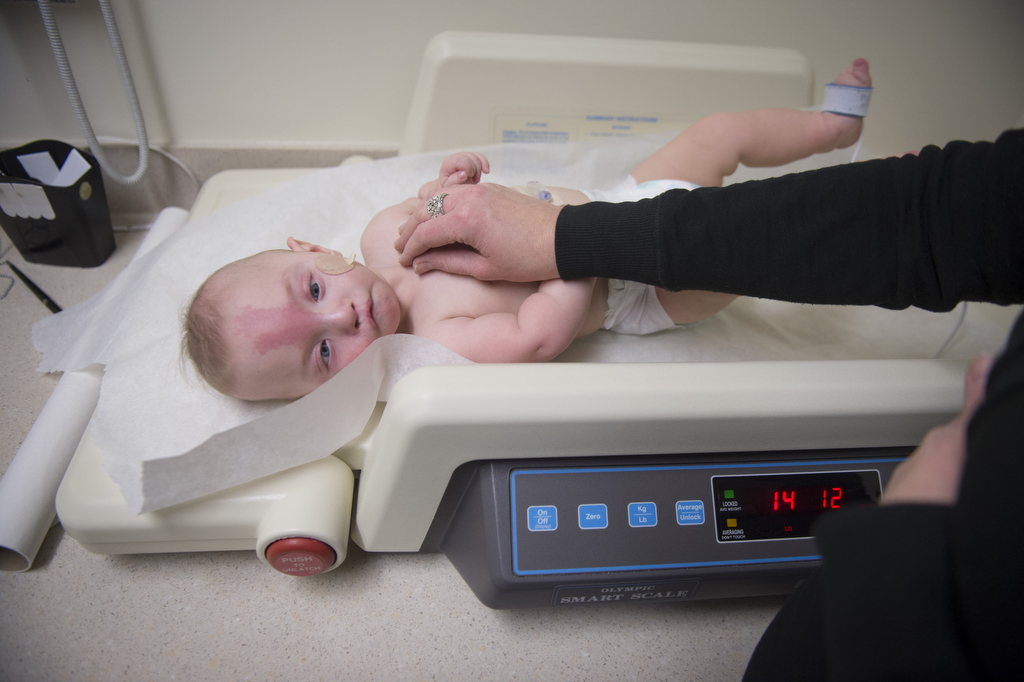
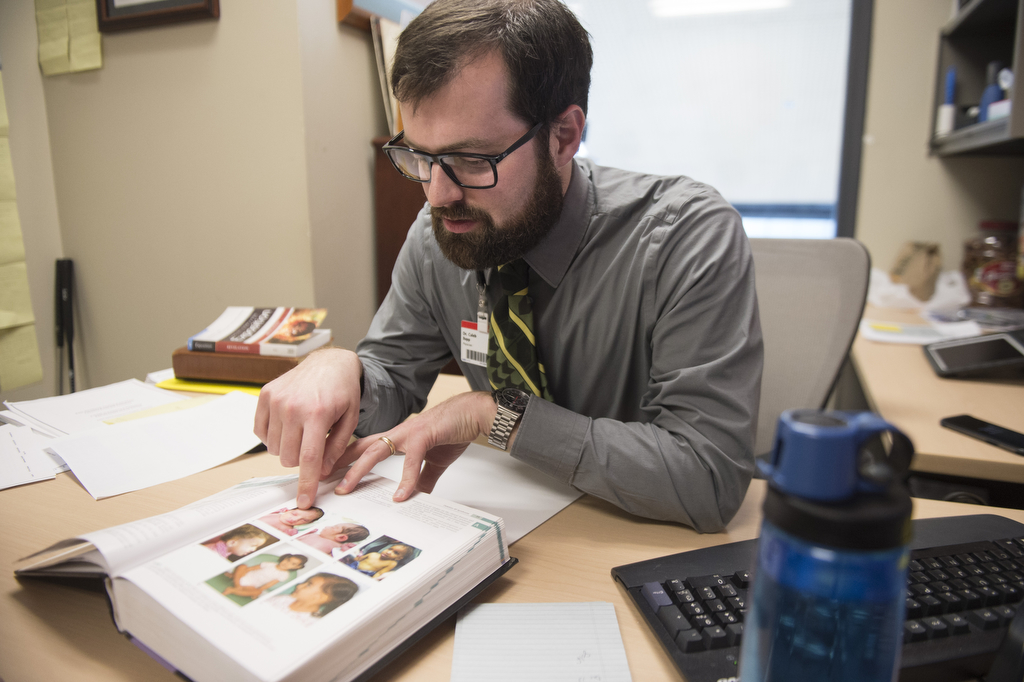
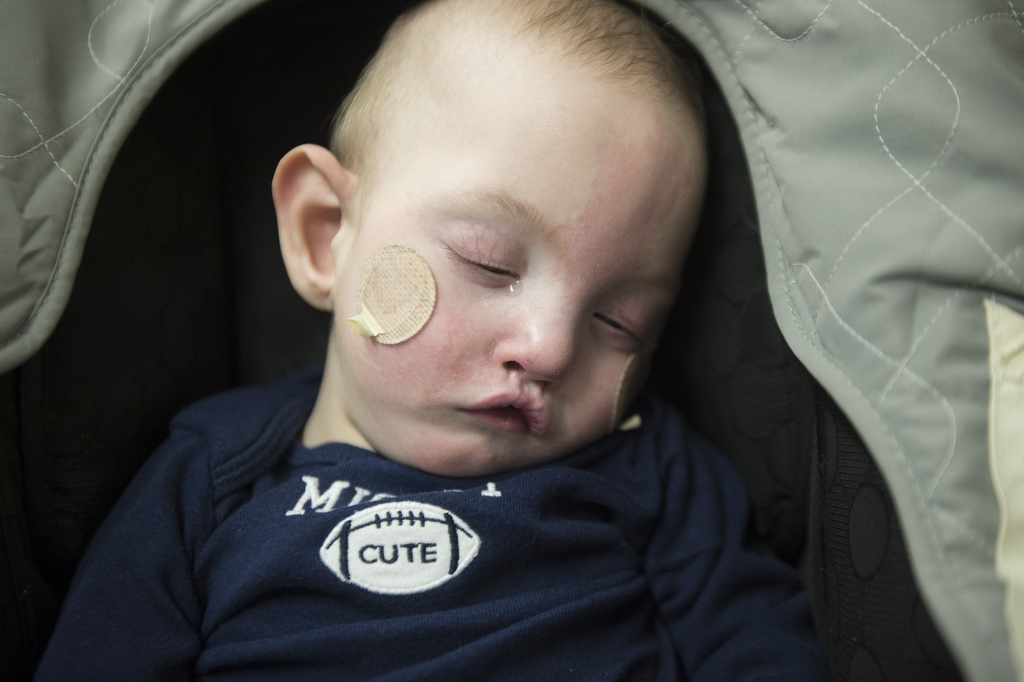
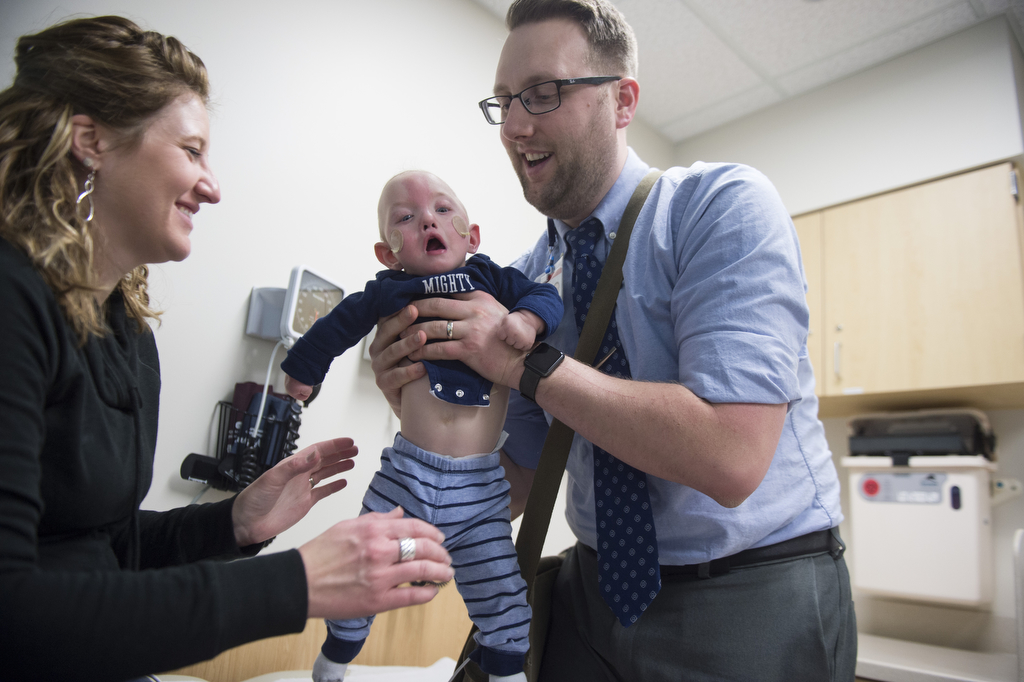
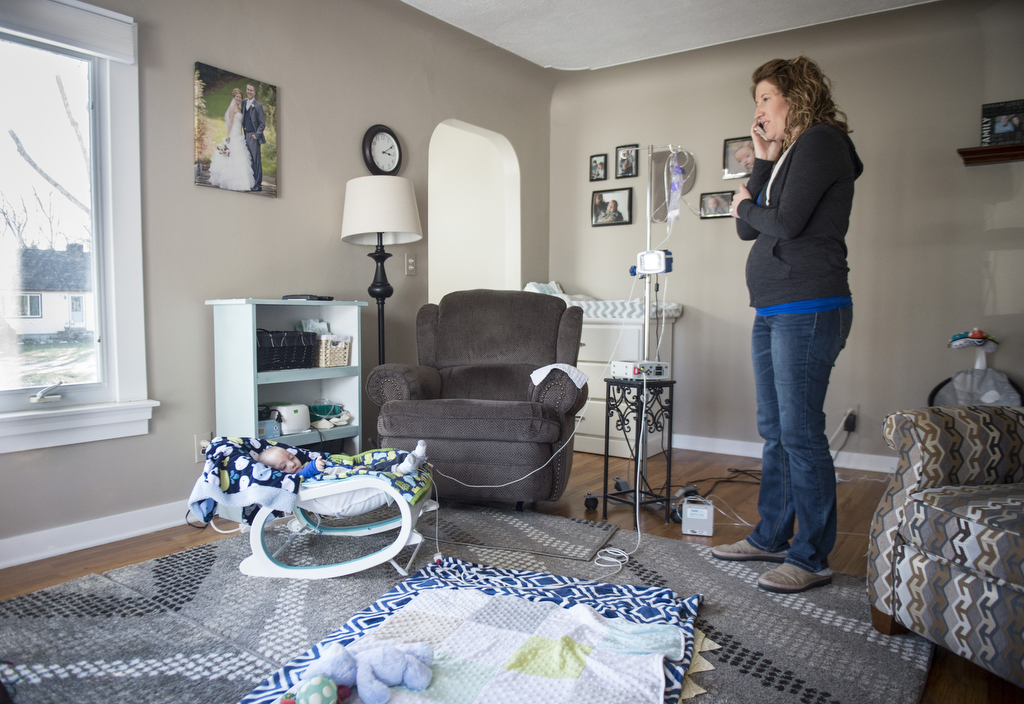

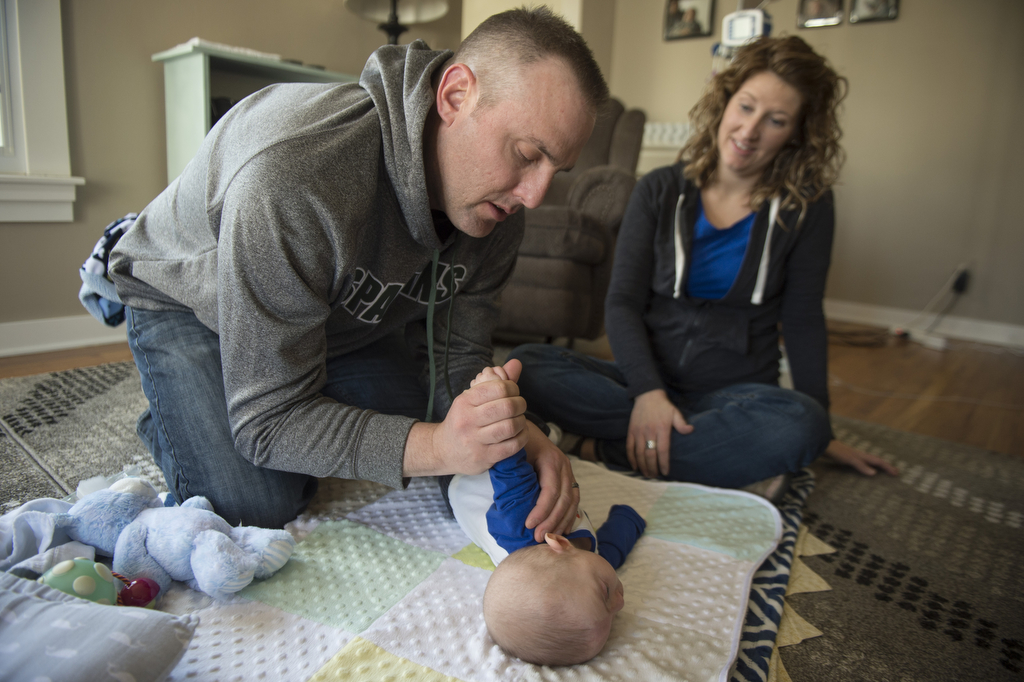
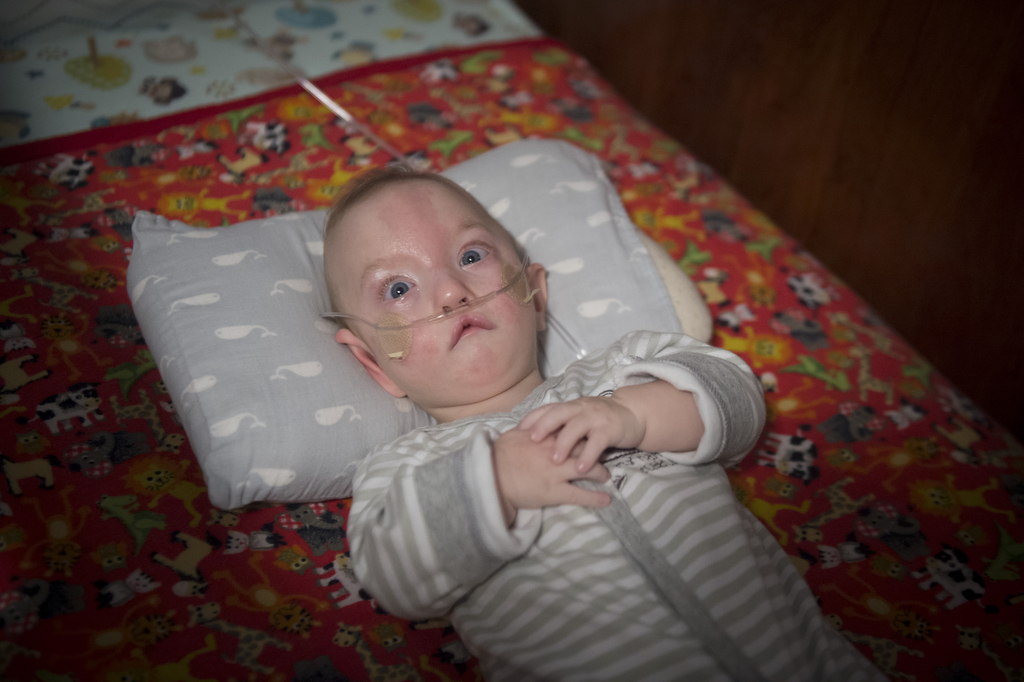
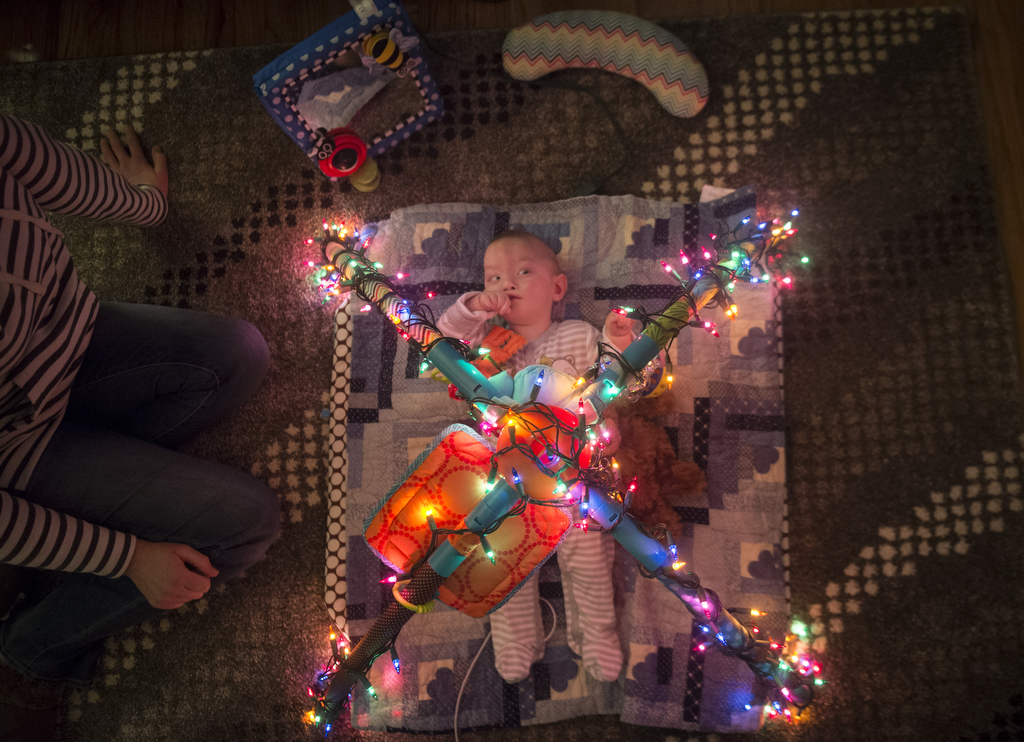

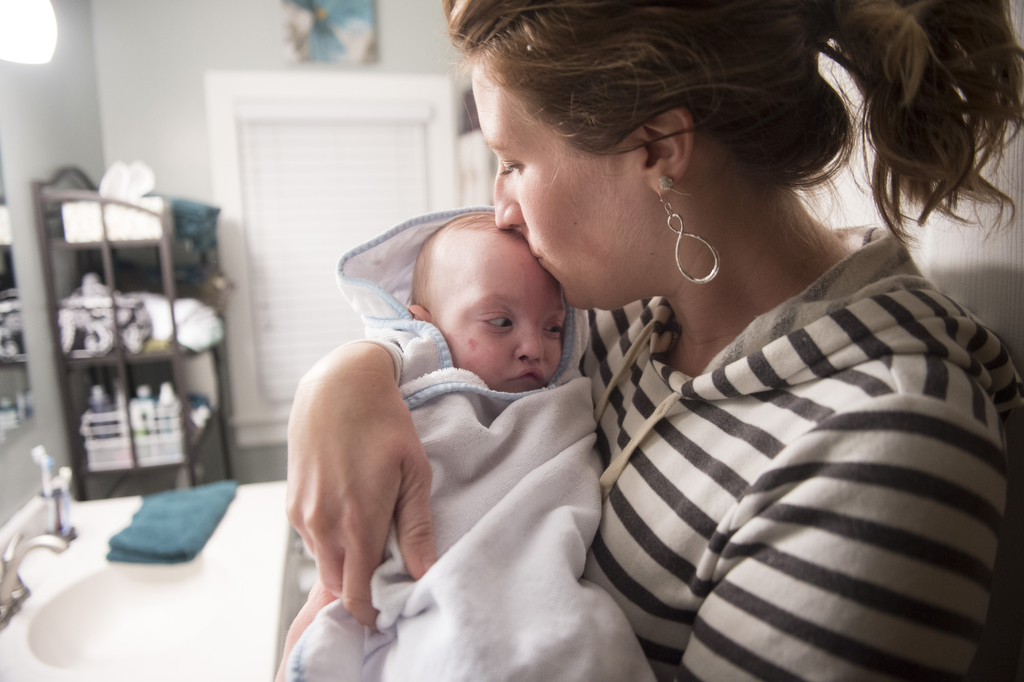

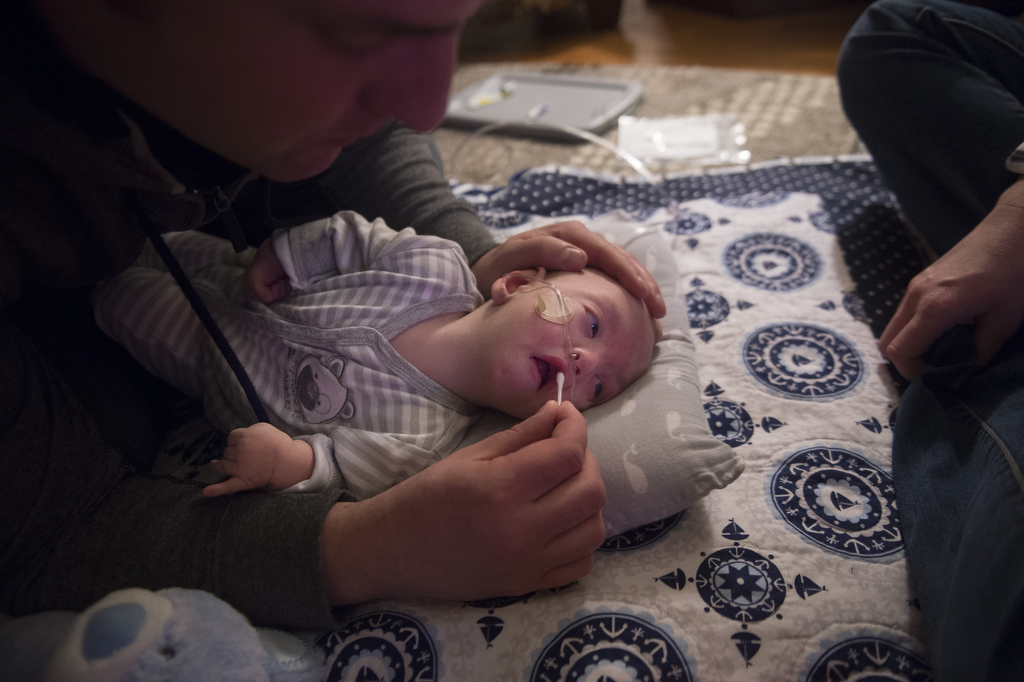
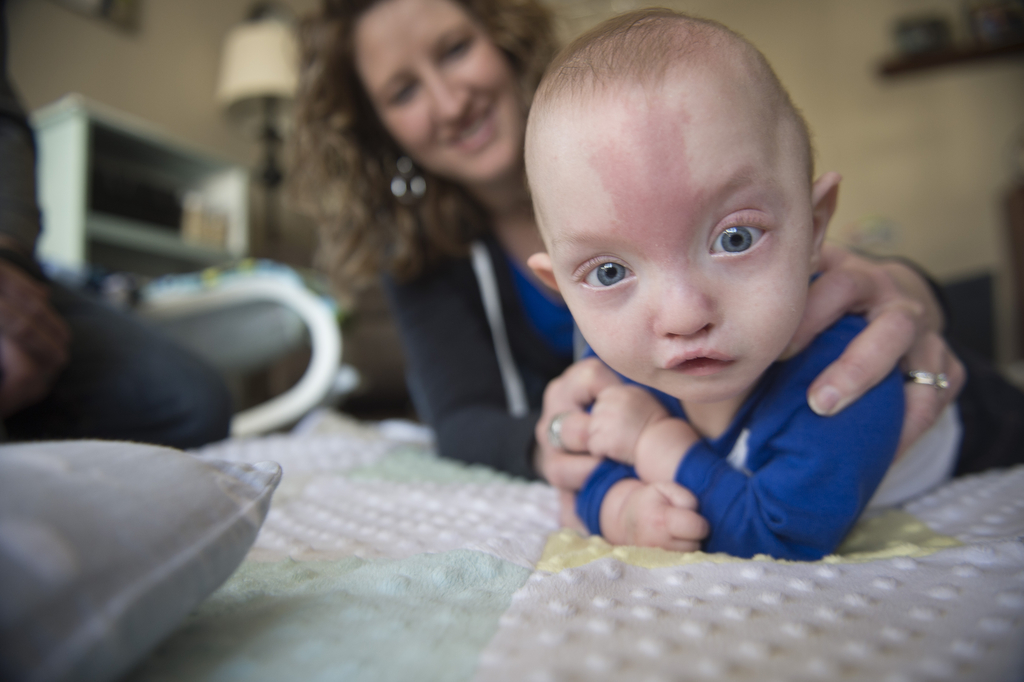
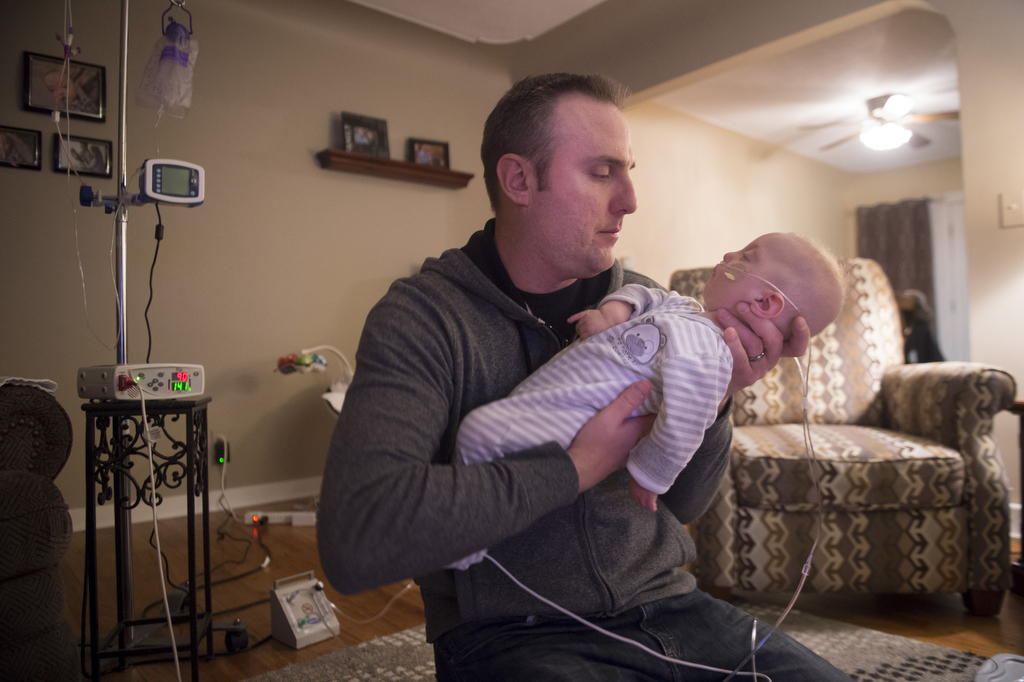
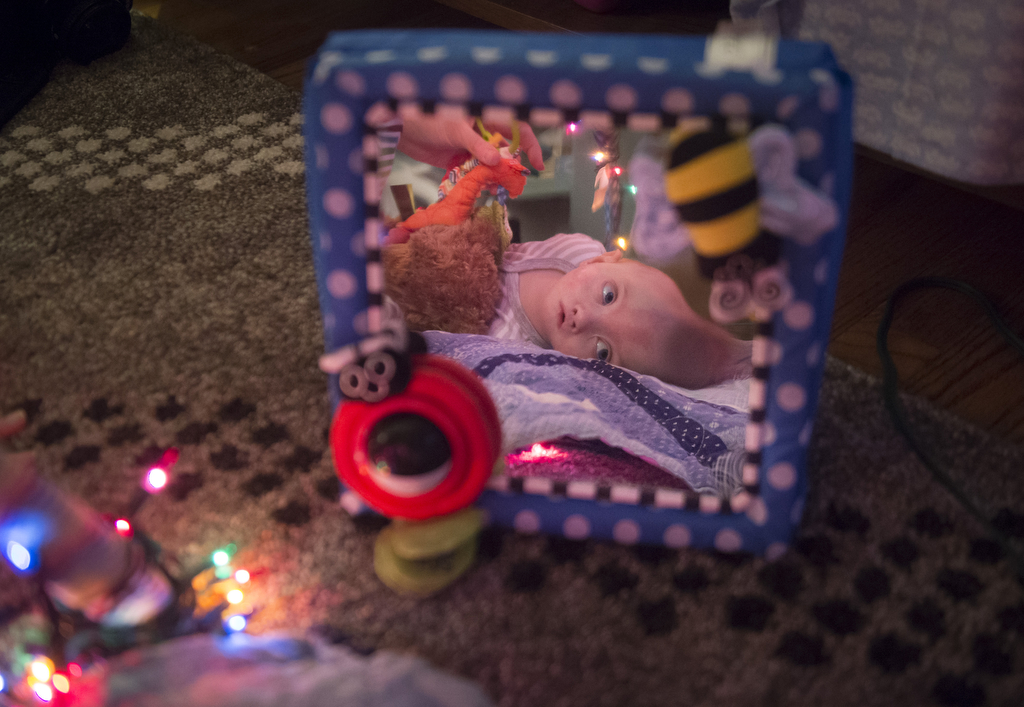
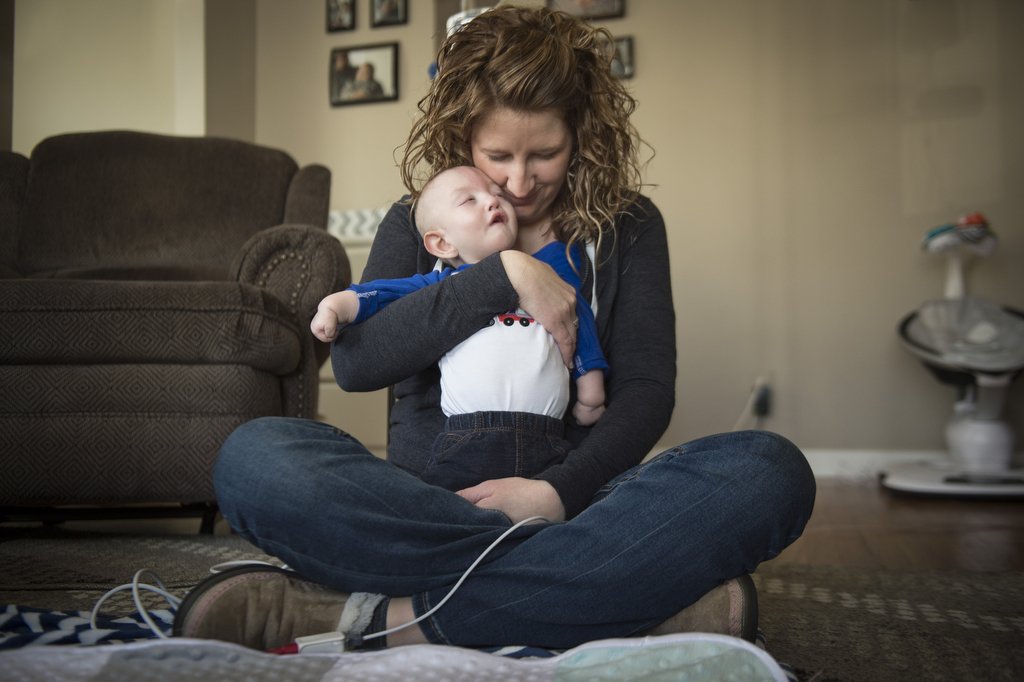

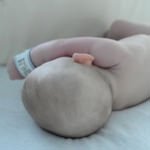
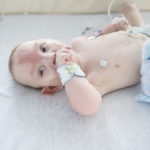
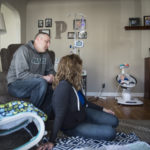

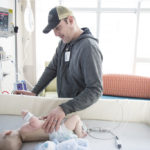
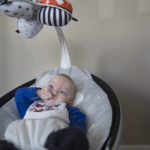
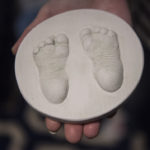




















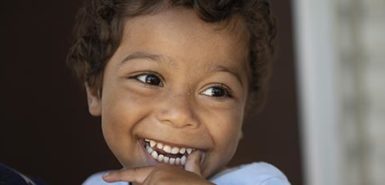 /a>
/a>
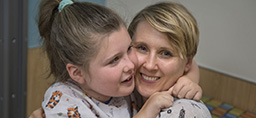 /a>
/a>
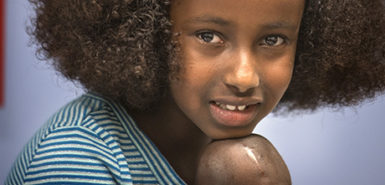 /a>
/a>
So glad that you did this story. Hayden has been a blessing to our family and his parents have shown what true unconditional love is all about. Each day is a gift and Jeff and Tara have remained firmly committed to providing Hayden with the love that he deserves!
It’s an honor to share this story about Hayden and his loving family. Taylor and I really enjoyed meeting them. Thank you for reading!
Thanks for sharing your story. The lessons we can learn from special needs children are amazing! ( I know from personal experience.) God bless you as you care for your precious little Hayden.
I have a nephew that also has chromosomal disorders t that makes him also the only one in the world like him. He is now 19. So im happy to see that you are giving him so much love and care the same as my sister has her son. We call Seth are miracle!!
This families story is amazing and one to be shared! With God’s blessings he teaches us that Love conquers all. I am thankful even more for reading this story and will pray for this family as they enjoy each and every moment with their son Hayden and their new addition in June!
Tara is my hairdresser and I get to hear about her little boy and his progress when getting my hair done. These truely are amazing, loving parents !! It is so great knowing there really are people like this in the world……
They certainly are loving and devoted parents. And Hayden is a sweetheart. Thanks for reading, Mary.
What a precious little soul! God bless this special family as they enjoy each day with Hayden. How wonderful that he is gong to be a big brother!
God bless you Tara, Jeff and Hayden! I completely agree with you both! God absolutely has a plan for you all!
My husband and I adopted a beautiful curly, blonde haired, blue eyed baby girl who we named Annie. She also has Wolf-Hirschhorn Syndrome. It has been a rollercoaster ride this past year caring for her and all of her medical needs, but it has been so worth it all. Things are settling down and she is thriving! She amazes us every day! She has taught us so much and has blessed us more than we could have imagined! Someone once said to me “God knew you needed her.” I just cried. Yes, he did.
You are an amazing family and I will keep you in my prayers. Take care of yourselves and good luck on your incredible journey!
Much love,
Elizabeth
Bless you and your family, Elizabeth, and thank you for sharing your story with Tara, Jeff, Hayden and the rest of the Health Beat family. Cheers, Cheryl
I’ve taken care of a kid with Cri du chat,years ago, but I hadn’t heard of the other syndrome…